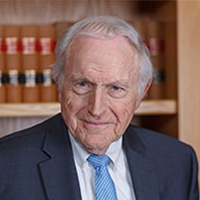CONTRACT
A legally binding agreement involving two or more people or businesses (called parties) that sets forth what the parties will or will not do. Most contracts tha...
(more...)A legally binding agreement involving two or more people or businesses (called parties) that sets forth what the parties will or will not do. Most contracts that can be carried out within one year can be either oral or written. Major exceptions include contracts involving the ownership of real estate and commercial contracts for goods worth $500 or more, which must be in writing to be enforceable. (See statute of frauds.) A contract is formed when competent parties -- usually adults of sound mind or business entities -- mutually agree to provide each other some benefit (called consideration), such as a promise to pay money in exchange for a promise to deliver specified goods or services or the actual delivery of those goods and services. A contract normally requires one party to make a reasonably detailed offer to do something -- including, typically, the price, time for performance and other essential terms and conditions -- and the other to accept without significant change. For example, if I offer to sell you ten roses for $5 to be delivered next Thursday and you say 'It's a deal,' we've made a valid contract. On the other hand, if one party fails to offer something of benefit to the other, there is no contract. For example, if Maria promises to fix Josh's car, there is no contract unless Josh promises something in return for Maria's services.
 x
x

 Herbert Cohen Boston, MA
Herbert Cohen Boston, MA Practice AreasExpertise
Practice AreasExpertise
